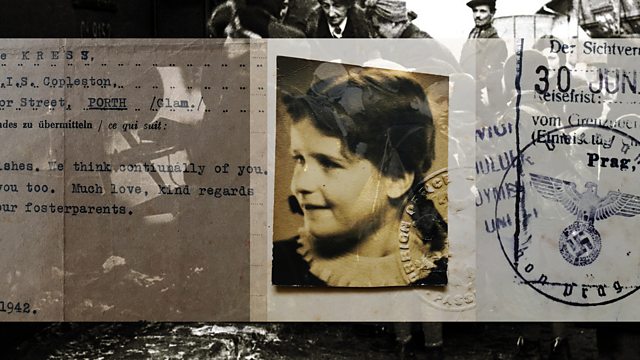This week, two programmes had a powerful impact on me. On Wednesday, BBC Radio Wales’ Eye on Wales put out a searing half-hour documentary on two of the last remaining Jewish women refugees in Wales, now aged 85 and 90, whose lives were saved when their parents put them on trains and into the care of strangers. The families of both women were later murdered by the Nazis.
Ellen Davies describes how she was beaten by boys from her local Hitler Youth who later forced her and other children to watch as they pushed an old man from the top of a building.
The eldest of seven children, she was the only one her parents could put on a refugee transport as war loomed. Her father survived the war but her mother and siblings were shot as they were taken off a train.
Renate Collins remembers her departure from Prague on the last train arranged by Sir Nicholas Winton even though she was only five and had a fever from chickenpox.
She learned last year that her mother and grandmother were summarily executed when the train taking them to the Treblinka death camp broke down.
: Kinder Transportees: https://www.bbc.co.uk/programmes/m0002hkv

Listen now
Under the Wire
https://www.bbc.co.uk/iplayer/episode/m0002k62/sto
The words of photographer Paul Conroy spoken directly to camera hit me in the gut.
On 13 February 2012, war-correspondent Marie Colvin and photographer Paul Conroy entered war-ravaged Syria to cover the plight of civilians trapped in the besieged city of Homs, under attack by the Syrian army. Only one of them returned. This is their story.
Marie Colvin was one the most fearless reporters of her time. She dedicated her life to bearing witness to the lives of ordinary people caught up in the world’s most dangerous conflicts. She covered Afghanistan, Iraq, Israel and Palestine, Sri Lanka, Chechnya and East Timor, and was on first-name terms with leaders like Muammar Gaddafi and Yasser Arafat.
In 2001 she lost the sight in her left eye after being caught in crossfire by a piece of shrapnel. On 13 February 2012, Marie was smuggled into Syria with her photographer, Paul Conroy. Despite intelligence reports that foreign journalists found in the area ‘would be executed and their bodies put on the battlefield, as if caught in crossfire’, they headed to Homs, determined to uncover the horror of Syrian civilians trapped by the conflict. Only one of them would return.
Based on the book of the same name by Paul Conroy, Under The Wire is the incredible story of Paul and Marie’s fateful mission, and Paul’s epic battle to escape the city to tell the world of his fallen colleague and the plight of the people of Homs. Under the Wire is a film about real journalism, about war and about an extraordinary commitment to telling the truth, whatever the cost.
0


Add “Kinder Transportees” to FavouritesAdd to Favourites
Download
Choose your file
26 days left to listen
28 minutes
On radio

Tomorrow18:30BBC RADIO WALES
More episodes
PREVIOUS
The bully is in the back pocket
NEXT
20/02/2019
See all episodes from Eye on Wales
More about the programme
The families of both women were later murdered by the Nazis.
Ellen Davies describes how she was beaten by boys from her local Hitler Youth who later forced her and other children to watch as they pushed an old man from the top of a building.
The eldest of seven children, she was the only one her parents could put on a refugee transport as war loomed. Her father survived the war but her mother and siblings were shot as they were taken off a train.
Renate Collins remembers her departure from Prague on the last train arranged by Sir Nicholas Winton even though she was only five and had a fever from chickenpox.
She learned last year that her mother and grandmother were summarily executed when the train taking them to the Treblinka death camp broke down.

One despairs as one asks the question: why?